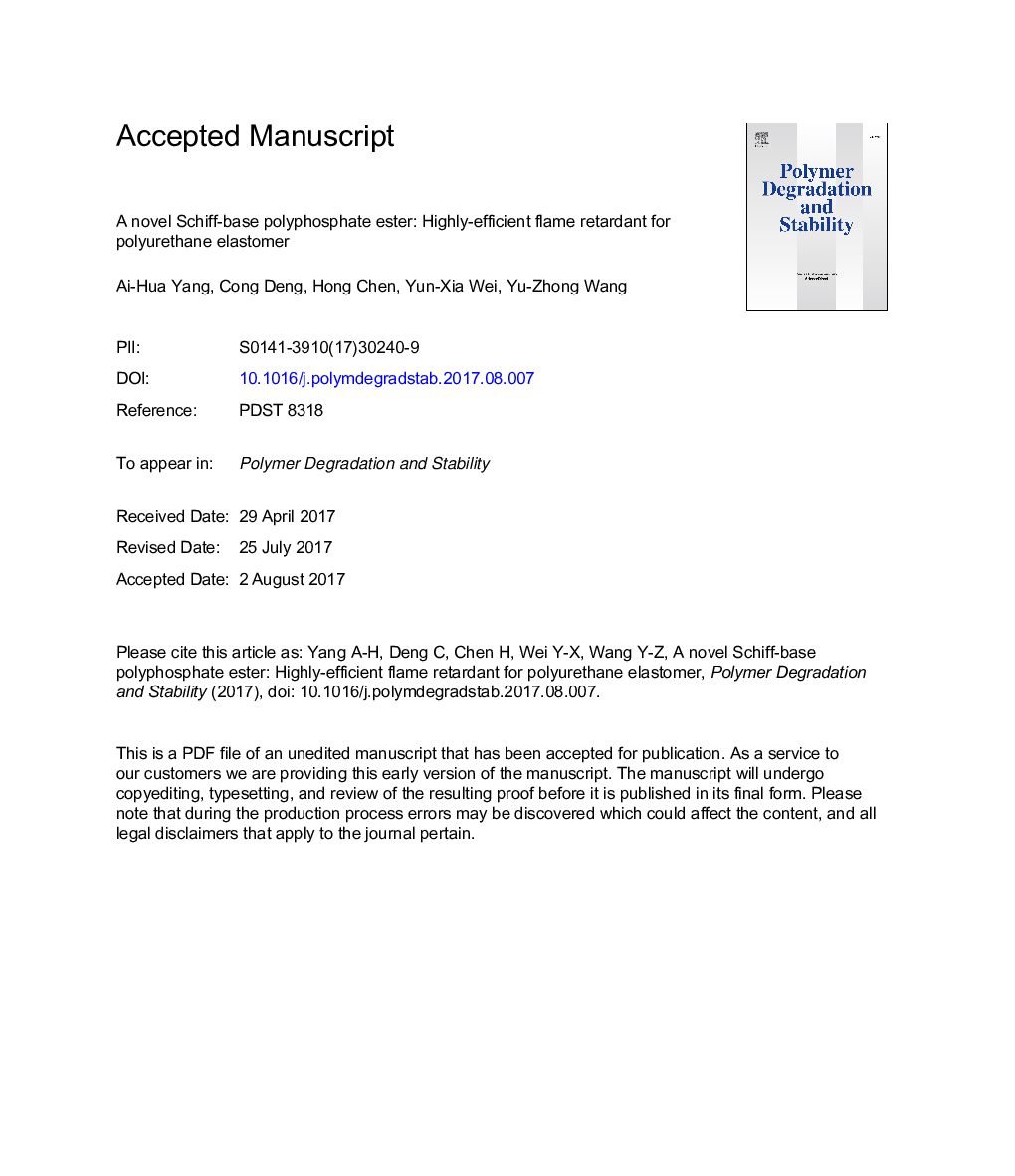| Article ID | Journal | Published Year | Pages | File Type |
|---|---|---|---|---|
| 5200733 | Polymer Degradation and Stability | 2017 | 30 Pages |
Abstract
A novel Schiff-base polyphosphate ester (SPE) flame retardant was synthesized through melt polycondensation, and used to flame retard thermoplastic polyurethane elastomer (TPU). The SPE possessed high thermal stability and rich char residue under high temperature according to the thermogravimetric (TG) analysis. In combustion tests, the flame-retarded TPU passed the UL-94 V-0 rating, and had a limited oxygen index (LOI) of 29% when the content of SPE was only 5Â wt%, meanwhile, the amount of dripping remarkably reduced. In cone calorimetry test, the peak of heat release rate (pHRR), average mass loss rate (AMLR), and maximum average rate of heat emission (MARHE) of the flame-retarded TPU with 5Â wt% SPE were respectively decreased by 61.7%, 41.8%, and 30.2% compared with the corresponding value of neat TPU. All these results demonstrated that the SPE simultaneously improved the flame retardancy and dripping behavior of TPU. Thermogravimetric-Fourier transform infrared spectra (TG-FTIR), pyrolysis-gas chromatography/mass spectrometry (Py-GC/MS), Fourier transform infrared spectroscopy (FTIR), X-ray photoelectron spectroscopy (XPS) and laser Raman spectroscopy (LRS) illustrated that SPE simultaneously played a flame-retardant role in both condensed phase and gas phase.
Related Topics
Physical Sciences and Engineering
Chemistry
Organic Chemistry
Authors
Ai-Hua Yang, Cong Deng, Hong Chen, Yun-Xia Wei, Yu-Zhong Wang,
